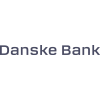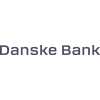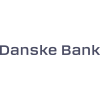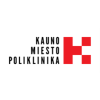186
- Details
- Highlights
- Company
Researcher Fellowship Ecological Self-Awareness and Environmental Imagination
The researcher fellowship is planned to be conducted at the (Post)Authoritarian Landscapes Research Centre at Vilnius University.
The deadline for applications for researcher fellowship projects is 22 September 2024 (local time zone UTC+2).
About the project:
The (Post)Authoritarian Landscapes Research Centre at Vilnius University announces a competition for a long-term research fellowship to carry out the project Ecological Self-Awareness and Environmental Imagination.
In the face of the climate crisis, it is acknowledged that ecological and social issues can no longer be addressed in isolation, therefore, the interdependence between the humans and the world around them has come to the fore. While all political systems had an impact on the natural environment throughout the 20th century, authoritarian regimes were often notable for the radical nature of their ideas, the scale of their transformations and their disregard of the negative impacts on the social and natural milieu.
The aim of the researcher fellowship is to carry out a philosophical analysis of eco-social ideas, to explore their links with the transformations of cultural (urban, agrarian) landscapes and land structures in the authoritarian and post-authoritarian countries in the 20th and 21st centuries, and/or to propose a revision of the paradigms of (post-)colonial thinking that is relevant to this context; to contribute to the development of an eco-social concept relevant to the post-authoritarian context, to reflect on and propose different aspects in developing the concept of the environmental imagination.
This researcher fellowship should apply methods, concepts and approaches from philosophy, humanities or social sciences. It should address one or several of the following issues:
1) Exploration of Ideas: how authoritarian and post-authoritarian contexts relate to the problems of the Anthropocene, ecological thinking, and environmental philosophy; how the dimension of eco-social ideas enables the interdisciplinary interpretation of (post)authoritarian landscapes;
2) Self-Awareness: how the authoritarian and post-authoritarian context changes new forms of human self-awareness, how the relationship between a human being and the environment can be reconsidered in this light, how new ways of thinking can be examined as a basis for practices that are sustainable, responsible, and in compliance with the environment and other forms of life;
3) Aesthetics: how authoritarian and post-authoritarian contexts relate to the aesthetic dimension in terms of shaping the environment; what aesthetic approach would enable the study of the preconditions for the emergence of the landscape phenomenon, their influence on the strategies of landscape representation and the search for new scenarios of localising practices in contemporaneity;
4) Imagination: what aspects of authoritarian and post-authoritarian contexts would allow us to reconsider the philosophical conceptualisation of the eco-social imaginaries, and what role this theoretical paradigm could play in the research of (post)authoritarian landscapes.
During the fellowship of the researcher, two articles must be prepared: one article must be published and one accepted for publication in international scientific journals (included in Scopus and/or CA WOS).
Project Supervisor:
During the fellowship, the researcher(s) will be able to choose the project leader or supervisor from among the members of the Eco-social Ideas Research Group at the (Post)Authoritarian Landscapes Research Centre:
1) Prof. Dr. Kristupas Sabolius (Faculty of Philosophy, Vilnius University)
2) Prof. Dr. Mintautas Gutauskas (Faculty of Philosophy, Vilnius University)
3) Associate Professor Dr. Vaiva Daraškevičiūtė (Faculty of Philosophy, Vilnius University)
Qualification requirements:
1) A doctoral degree in philosophy, humanities, or social sciences, with a preference for philosophy, obtained no earlier than five years ago (in 2019 or later), is required. This period does not include periods of maternity, paternity, or childcare leave for up to three years until the child turns three.
2) The dissertation must be defended outside Vilnius University;
3) English language skills (level C1 and higher).
In assessing the applications submitted, the following would be considered an advantage:
1) Experience in conducting research related to environmental philosophy and/or postcolonial thought, aesthetic interpretation of landscapes, or related topics;
2) If the project being submitted proposes the use of interdisciplinary approaches;
3) If the trainee(s) has(ve) publications demonstrating his/her overall competence as a researcher(s);
4) If the trainee(s) has(ve) publications demonstrating his/her specific competences as a researcher related to at least one of the above-described research directions.
The duration of the fellowship is 24 months: from 3 November 2024 to 30 October 2026.
Part-time: one full-time equivalent.
Salary: up to €2967/month (before taxes).
Documents to be submitted:
1) Project application.
The project application form is available here.
(https://www.vu.lt/site_files/AN_APPLICATION_FORM_ECOSOCIAL.docx)
2) Curriculum vitae and list of publications.
3) Copy of the doctoral diploma with its attachments.
Contacts:
Please send the completed researcher fellowship project application form and other documents to: lijana.minikovic@if.vu.lt
For more information on the application, please ask: Prof. Dr. Kristupas Sabolius (kristupas.sabolius@fsf.vu.lt)
€
2900 - 2976
Location
- Vilnius, Vilniaus apskritis, Lithuania
Universiteto g. 7, Vilnius
Time of work
- Fixed term
Contact person
Jurgita Dugnienė
Jurgita Dugnienė
Vilnius University is the first and one of the best universities in Lithuania, founded in 1579, is a leader in most fields of study and research in the country and is among the 500 best universities in the world. The most talented Lithuanian students choose to study here and well-known professionals in the country and abroad teach and work here. The University creates a study and work environment that fosters individual, social and cultural diversity and ensures equal opportunities for members of the University community.
Vilnius University is also one of the largest employers in Lithuania, currently having more than 5,000 employees in various fields, united by common values.
OPENNESS to the diversity of ideas and views, the distinctiveness of people and identities.
INTEGRITY of the universitys goals, activities and resources, based on personal dignity and respectful collaboration.
IMPROVEMENT by creating an enabling environment with a commitment to excellence, growth and acceptance of those wanting to improve in order to achieve an exceptional value.
A LONG-TERM PURPOSE stemming from a prospective foresight seen as a responsibility to the state and the society, culture and the environment.
Similar job ads:
Verslo klientų vadybininkas (-ė) Klaipėdoje
Chief Kubernetes Engineer
Senior Data Engineer for Data Products
Senior Machine Learning Engineer for Data Products
Bendrosios praktikos slaugytojas, fizioterapija, Šilainiai
Fund Accounting Supervisor